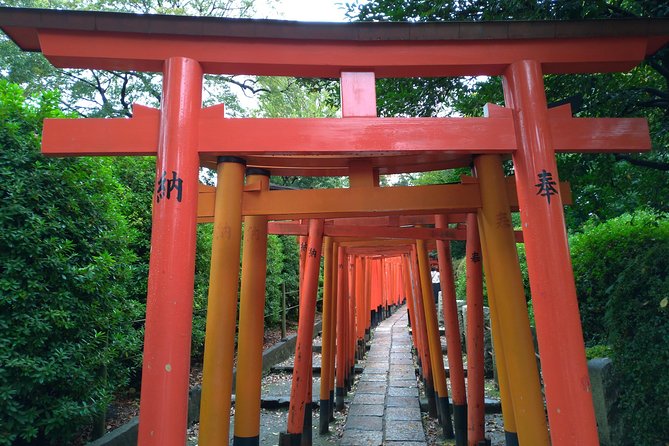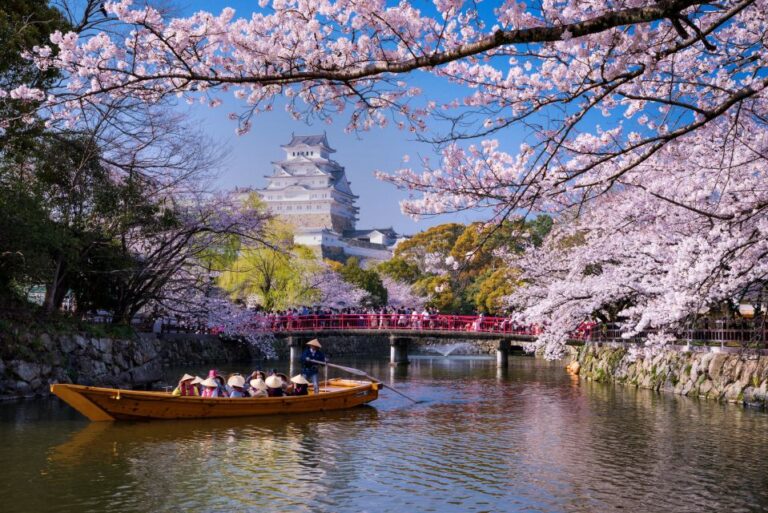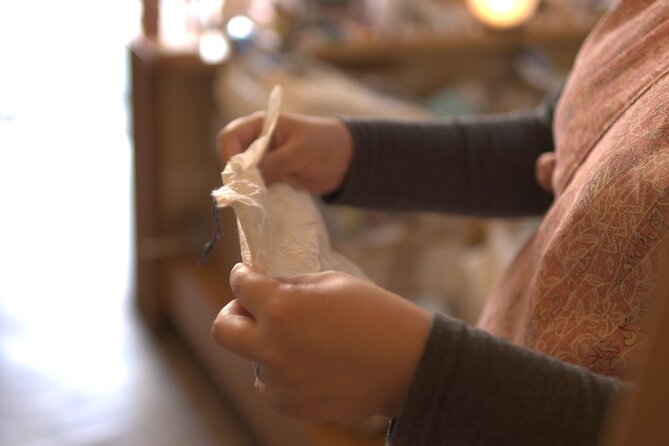Unbeknownst to many, Japanese tea tasting experiences offer a stack of flavors and aromas waiting to be discovered. From the earthy richness of Gyokuro to the toasted notes of Hojicha, each variety presents a unique journey for the senses.
But what sets these teas apart? Explore the intricacies of Japanese tea culture as we unveil the secrets behind seven distinct tea tasting experiences that will captivate both novices and seasoned enthusiasts alike.
Let the adventure begin as you embark on a flavorful exploration through the diverse world of Japanese teas.
Just The Basics
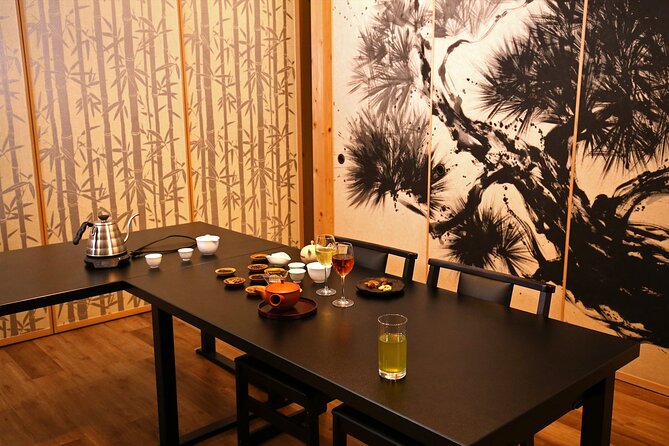
- Explore diverse Japanese green teas like Sencha and Gyokuro for rich antioxidants and unique flavors.
- Experience specialized teas like Matcha and Hojicha for distinct preparation methods and health benefits.
- Discover blends such as Genmaicha and Kukicha for varied tastes and calming effects.
- Japanese tea culture offers a range of flavors, aromas, and health benefits to suit different preferences.
Green Tea
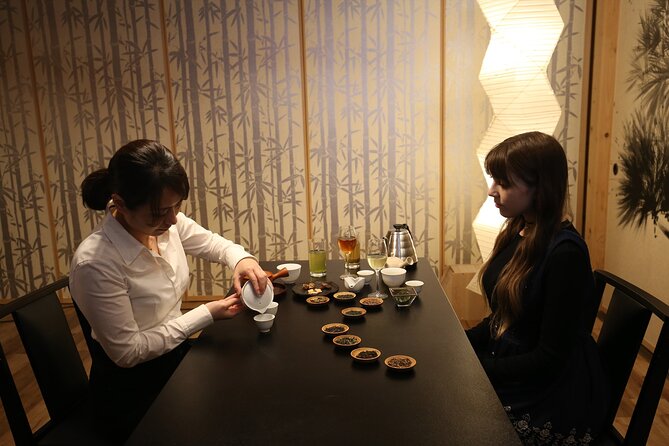
Green tea, known for its refreshing taste and health benefits, is a staple in Japanese tea culture. This traditional tea is packed with antioxidants, making it a popular choice for those looking to boost their immune system and improve overall health.
The health benefits of green tea include aiding in weight loss, reducing the risk of heart disease, and promoting healthy skin. When it comes to brewing techniques, the water temperature plays a crucial role in bringing out the best flavors of green tea. Typically, green tea should be brewed with water that’s around 175°F (80°C) to prevent bitterness.
Steeping time is also essential; usually, green tea is steeped for about 2-3 minutes to achieve a delicious and flavorful cup.
Matcha
Steeped in rich tradition and vibrant flavor, Matcha holds a special place in Japanese tea culture, captivating enthusiasts with its unique preparation and exquisite taste.
Matcha, a finely ground green tea powder, offers numerous health benefits due to its high concentration of antioxidants and amino acids. To brew the perfect cup of Matcha, traditional Japanese tea ceremonies emphasize the precise techniques of whisking the tea with hot water until a frothy layer forms on top.
Apart from traditional brewing methods, Matcha is also popularly used in modern recipes like Matcha lattes, blending the tea with steamed milk for a creamy and flavorful drink.
Beyond its delicious taste, Matcha carries significant cultural significance in Japan, symbolizing harmony, respect, and tranquility.
Sencha
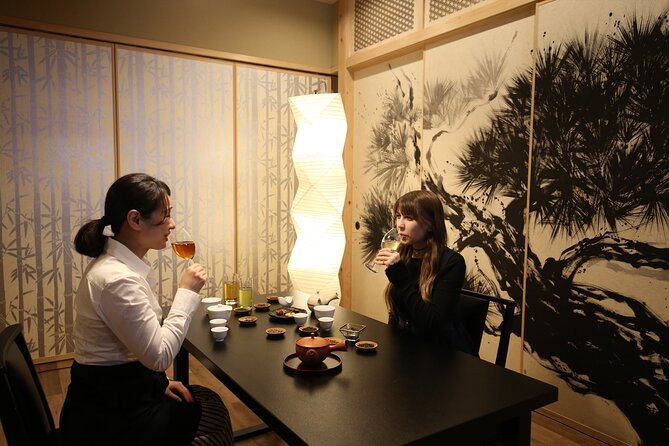
Originating from the lush tea fields of Japan, Sencha is a popular and vibrant Japanese green tea known for its refreshing taste and vibrant green color.
To brew the perfect cup of Sencha, it’s essential to use water at around 70-80°C and steep the leaves for about 1-2 minutes. This method helps extract the tea’s full flavor without turning it bitter.
Sencha is rich in antioxidants, vitamins, and minerals, making it a great choice for boosting the immune system, improving heart health, and aiding in weight loss. Regular consumption of Sencha is also linked to increased energy levels and improved focus.
With its delightful taste and numerous health benefits, Sencha is a delightful tea choice for tea enthusiasts worldwide.
Genmaicha
With its unique blend of green tea and toasted rice, Genmaicha offers a delightful and nutty flavor profile that sets it apart from traditional Japanese teas. Genmaicha, also known as ‘popcorn tea,’ has gained popularity for its comforting taste and aroma.
This tea isn’t only delicious but also offers health benefits. Genmaicha is rich in antioxidants and may aid in digestion due to the rice content.
When it comes to pairing, Genmaicha goes well with savory dishes like sushi, tempura, or light snacks such as rice crackers. Its toasty notes complement a wide range of flavors, making it a versatile choice for tea enthusiasts.
Whether enjoyed hot or cold, Genmaicha provides a satisfying and soothing tea experience.
Hojicha
Hojicha, a roasted green tea, offers a unique and distinct flavor profile that sets it apart from other Japanese teas. The Hojicha roasting process involves roasting the tea leaves at high temperatures, which gives it a reddish-brown color and a nutty, caramel-like taste. This roasting method also reduces the caffeine content, making it a great option for those looking for a milder tea to enjoy throughout the day.
Apart from its inviting flavor, Hojicha carries various health benefits. It’s rich in antioxidants, which help in boosting the immune system and promoting overall well-being. Plus, the roasting process gives Hojicha a comforting aroma that can be soothing and relaxing, making it a perfect choice for unwinding after a long day.
Gyokuro
Explore the world of Japanese tea with the exquisite and revered Gyokuro, a shade-grown green tea renowned for its rich umami flavor and vibrant green hue.
Gyokuro brewing techniques involve using lower water temperatures to extract the tea’s delicate flavors fully. This tea requires precision and care to brew properly, with steeping times around 2-3 minutes for optimal taste.
Gyokuro is known for its health benefits, containing high levels of antioxidants that may help boost metabolism and improve overall well-being. Plus, Gyokuro is rich in L-theanine, an amino acid that promotes relaxation and mental clarity.
Experience the luxurious taste and numerous health advantages of Gyokuro through mindful brewing and savoring.
Kukicha
Kukicha, also known as twig tea, offers a unique and flavorful twist to the world of Japanese teas with its blend of tea leaves and stems.
When brewing Kukicha, it’s essential to use slightly cooler water than usual and steep it for around 2-3 minutes to bring out its delicate flavors without any bitterness.
This tea is known for its low caffeine content, making it a great option for those looking to reduce their caffeine intake. Kukicha is also rich in antioxidants, vitamins, and minerals, promoting overall well-being.
Its health benefits include aiding digestion, boosting the immune system, and providing a calming effect. Incorporating Kukicha into your tea collection can introduce you to a new level of tea enjoyment while reaping its numerous health advantages.
Common questions
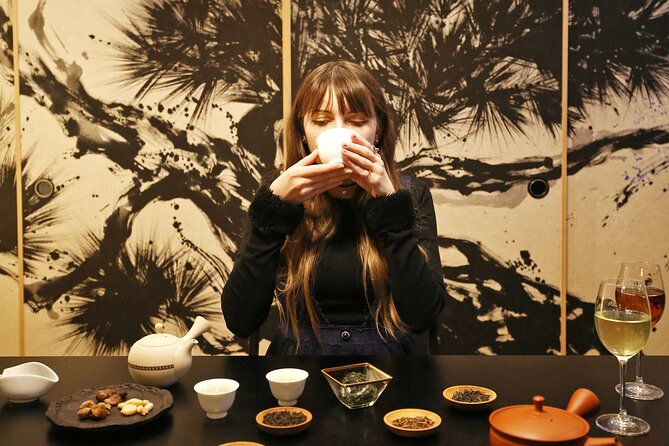
Can I Bring My Own Tea Set to the Tasting Experience?
Yes, visitors can bring their tea set to the tasting experience. When considering tea set etiquette and cultural sensitivity, it’s advisable to inquire beforehand to ensure the seamless integration of personal items into the traditional Japanese tea tasting setting.
Are There Any Special Rituals or Traditions I Should Be Aware of During the Tea Tasting?
During the tea ceremony, participants should respect traditional customs like bowing before and after receiving tea. Understanding the cultural significance adds depth to the experience. Immerse in the ritual of preparing and savoring tea.
Is There a Minimum Age Requirement to Participate in the Tasting Experience?
There is no minimum age requirement for the tasting experience. Children are welcome to join! Accompanying adults can enjoy the tea tasting alongside their young ones. It’s a family-friendly activity that everyone can savor.
Are There Any Local Customs or Etiquette I Should Follow When Tasting Japanese Tea?
When participating in a Japanese tea ceremony, it’s essential to respect cultural norms. Follow tea etiquette, observe the host, and savor each step of the traditional tea preparation process. Enjoy this rich cultural experience.
Can I Purchase the Teas Tasted During the Experience to Take Home With Me?
Yes, guests can purchase the teas tasted during the experience as delightful tea souvenirs to bring a piece of the tasting adventure home. Remember to follow the tasting etiquette to fully appreciate the flavors and traditions.
Last Words
Set out on a delightful journey through the world of Japanese tea tasting experiences and discover the rich flavors and traditions that make it a beloved cultural treasure.
From the vibrant matcha to the soothing sencha, each variety offers a unique and memorable taste sensation.
Whether you’re a tea novice or a seasoned connoisseur, exploring the nuances of Japanese tea will surely leave you with a newfound appreciation for this ancient and revered beverage.
Cheers to a tea-rific adventure ahead!



